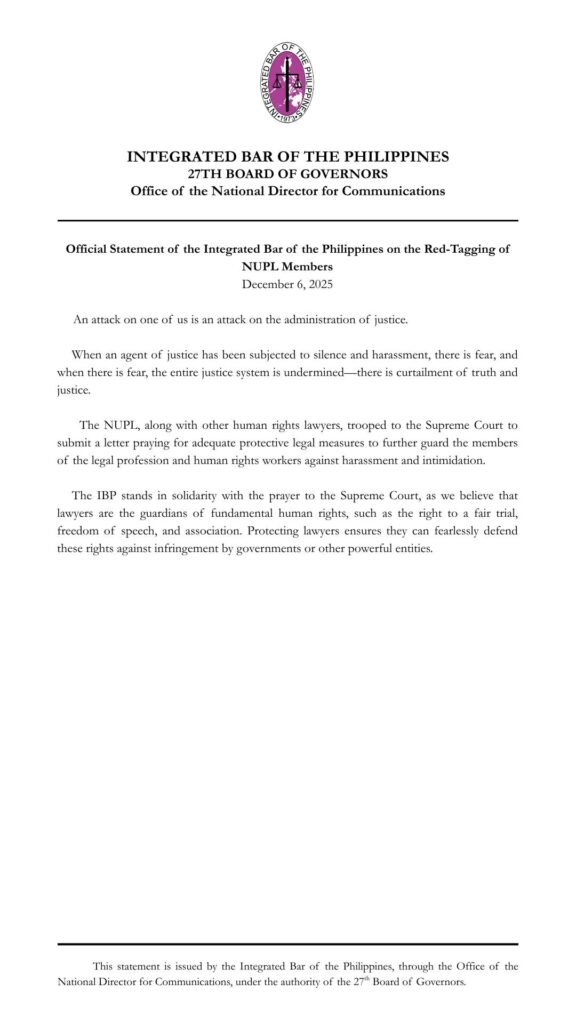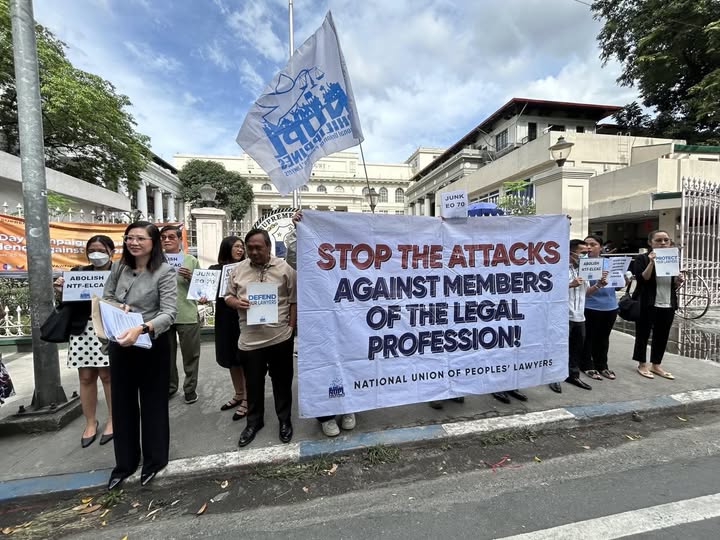House Deputy Minority Leader and ACT Teachers Partylist Rep. France Castro and ACT Teachers nominee Antonio Tinio expressed grave alarm over the recent Philippine Statistics Authority (PSA) study revealing that 18.9 million Filipinos who completed secondary education between 2019 and 2024 are considered “functionally illiterate.”
“This is not just a crisis—it’s a national emergency,” Rep. Castro said. “When one out of five senior high school graduates cannot comprehend a simple story despite years of schooling, we are looking at a systemic failure that threatens our country’s future. Ito ay patunay na bumabagsak ang ating sistema ng edukasyon at hindi ito nabibigyan ng sapat na atensyon ng kasalukuyang administrasyon.”
The PSA’s Functional Literacy, Education and Mass Media Study (FLEMMS) showed that only 79 percent of senior high school graduates in 2024 were functionally literate, meaning they could read, write, and compute but lacked the comprehension skills to understand what they read.
“Nakakabahala na sa kabila ng K-12 program, milyun-milyon pa rin ang mga kabataang Pilipino ang hindi nakakaunawa ng binabasa nila,” Castro added. “How can we expect them to compete in today’s knowledge-based economy when they lack the most basic skills needed for meaningful employment and participation in society?”
Former ACT Teachers Representative and current party-list nominee Antonio Tinio pointed out that the alarming literacy crisis is a direct result of chronic underfunding of public education.
“For decades, we have been warning about the consequences of neglecting our education system,” Tinio said. “The government has consistently failed to meet the UN-recommended education budget allocation of 6% of GDP. Ang katotohanan ay simple lang: kung kulang ang pamumuhunan sa edukasyon, kulang ang sahod ng mga guro at education support personnel, kulang din ang matututunan ng ating mga mag-aaral.”
Tinio emphasized that the literacy crisis disproportionately affects poor communities, perpetuating cycles of poverty and inequality.
“The PSA study confirms what we’ve long known—that provinces with the highest functional illiteracy rates also have the highest poverty incidence,” he noted. “This is not coincidental. When children cannot read with comprehension, they are effectively locked out of opportunities for social mobility and economic advancement.”
Castro and Tinio called for immediate and decisive action to address the crisis, including the passage of House Bill 1783 or the Education as Priority in the National Appropriations (EDNA) Act, which would mandate allocating at least 6% of GDP to education.
“We need to double our current education budget to address classroom shortages, hire more qualified teachers, increase the salaries of teachers and education support personnel, provide quality learning materials, and implement effective literacy interventions,” Castro said. “Kung hindi natin ito gagawin ngayon, mananatili tayong isang bansang puno ng potensyal ngunit kulang sa kakayahan.”
“The functional literacy crisis is the most concrete manifestation of decades of neglect and misplaced priorities,” Tinio added. “Instead of confidential funds, and militarization through NTF-ELCAC, we should be investing in our children’s ability to read, understand, and think critically.”
The education advocates also called for a comprehensive review of the K-12 curriculum and teaching methodologies.
“Hindi sapat na madagdagan lang ang budget. Kailangan din nating repasuhin ang nilalaman ng ating kurikulum at ang mga paraan ng pagtuturo,” Castro stressed. “We need to focus on developing critical thinking and reading comprehension skills from the earliest grades, not just rote memorization of facts.”
Castro and Tinio urged the public to recognize the literacy crisis as a national emergency requiring immediate, sustained, and substantial intervention.
“This is not just about education—this is about our country’s future,” Castro concluded. “A functionally illiterate population cannot build a progressive, sovereign, and just society. The time to act is now, before we lose an entire generation to functional illiteracy.”#




